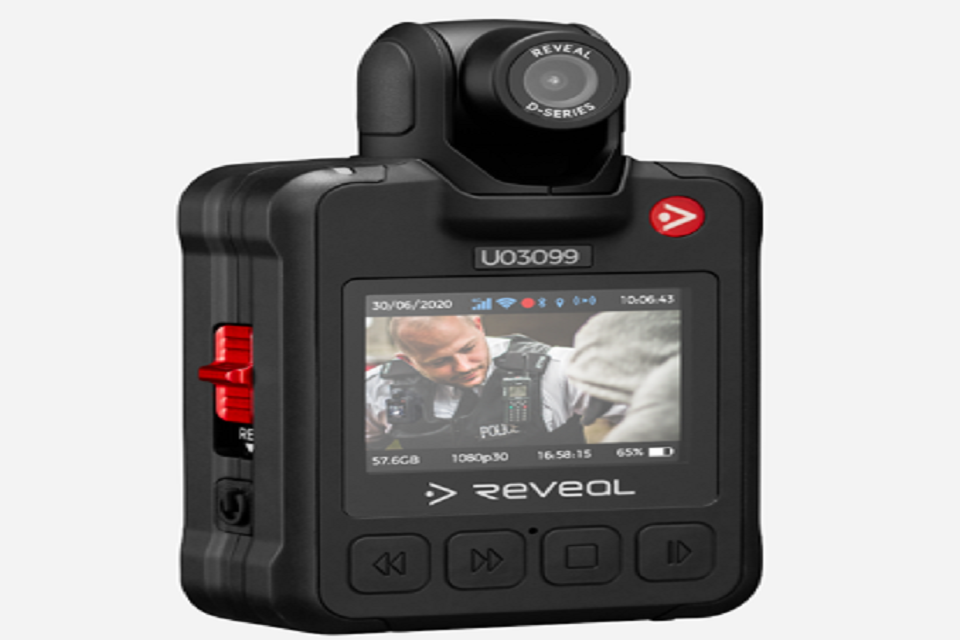Civil Nuclear Constabulary's use of body worn video
Officers at the Civil Nuclear Constabulary wear body worn video, which they activate when attending incidents where they feel it is necessary. We are only able to provide footage recorded by the officers who work for us.
Documents
Details
The Civil Nuclear Constabulary is only able to provide footage recorded by the officers who work for us. If you would like footage recorded by another police force, please contact them directly. If you do not know your local force, please consult Police.uk or Police Scotland
CNC officers wear Reveal D5 cameras as Body Worn Video (BWV). The cameras that our officers wear capture both video and audio evidence when they attend all types of incidents.
What is Body Worn Video and why do we wear them?
The Civil Nuclear Constabulary is committed to maximising the use of its resources to capture the best possible evidence, by the effective use of technology. When used effectively BWV can promote public reassurance, capture best evidence, reduce harm, and deter people from committing crime and anti-social behaviour.
Recordings made by BWV will provide independent evidence that will improve the quality of prosecution material and may reduce the reliance on victim evidence, particularly those who may be vulnerable or reluctant to attend court.
Our officers wear BWV for compliance:
- with National Police Firearms Training Curriculum Modules
- with National Police Chiefs Council directive
- with Authorised Professional Practice in armed policing that states all armed officers in overt operations must wear BWV

Reveal camera used by CNC officers for Body Worn Video
About the CNC’s use of BWV
Body Worn Video (BWV) is a small camera attached to an officer’s uniform. They are designed to be visible so that you know when an officer is wearing one and when it is being used to record. They capture both video and audio.
The position of the camera means those watching the footage see the situation from the officer’s perspective, which allows the camera to act like an independent witness.
The footage is placed on an internal storage device and this is uploaded to a secure location at the end of every shift. It is automatically deleted after 31 days if not needed, but if it captures evidence that may be required at court or in other legal proceedings then it is retained for that purpose.
When the camera is turned on at the start of a shift it starts capturing a rolling 30 second loop of video and audio. This 30 seconds of video is not saved unless the officer activates the camera to record, in which case the 30 seconds of video captured immediately prior to the decision to record are included in the recording.
Officers will activate their cameras at the start of an incident or encounter, and will continue to record until it’s no longer ‘proportionate or necessary’ or another system takes over, eg CCTV within a police station.
The use of BWV is incident specific; unless they’re part of a specific operation, officers won’t be recording as part of normal patrolling.
When it’s recording, a flashing red light will appear on the top right of the camera, the front screen will display what the camera is capturing and officers will make people aware that they are being recorded.
Typically officers use the cameras when they:
- may need to provide evidence in the investigation of an offence or suspected offence
- to provide transparency, for example during a stop and search or when force is used
The footage will also help officers to submit a written report of an encounter or incident. Officers will almost always use a camera when they are:
- attending a firearms deployment
- performing a stop and search
- dealing with a suspected terrorism offence
- attending crime and traffic scenes
- whilst driving an operational vehicle in response or pursuit mode
- dealing with protest or public order
- searching premises
Privacy and BWV
Under data protection legislation, police officers must inform people that they’re being filmed wherever possible, and the cameras feature a flashing red light to warn when recording is taking place. In addition, we train our officers to inform individuals that recording may take place if it is not obvious in the particular circumstances.
Officers do not have to get your consent to be filmed. You do however have the right to request access to footage in which you may have been captured. Footage is stored securely inside the camera and cannot be deleted or edited by the individual officer.
When an officer docks their camera to charge the battery, the footage is uploaded to secure servers. Recordings that aren’t categorised as required for evidence at court or in other legal proceedings will be automatically deleted within 31 days.
Any footage that’s retained as evidence, for disclosure or for other legitimate policing purposes, is regularly reviewed in line with Management of Police Information. It is not kept for intelligence, and we comply with the Surveillance Camera Code of Practice.
Access to footage
If you need access from any local police force please contact them directly.
If you do not know your local force, please consult Police.uk or Police Scotland
The details below are specific to officers of the Civil Nuclear Constabulary.
The CNC is the data controller of any footage within the CNC jurisdiction and you can request access to it by making a Subject Access Request by emailing data.protection@cnc.police.uk We have governance procedures in place to be able to retrieve any stored footage and can blur or mask it if redaction is required to protect the rights and freedoms of any third parties.
Updates to this page
-
Updated to tell users where to get BWV footage from their local Home Office force
-
First published.